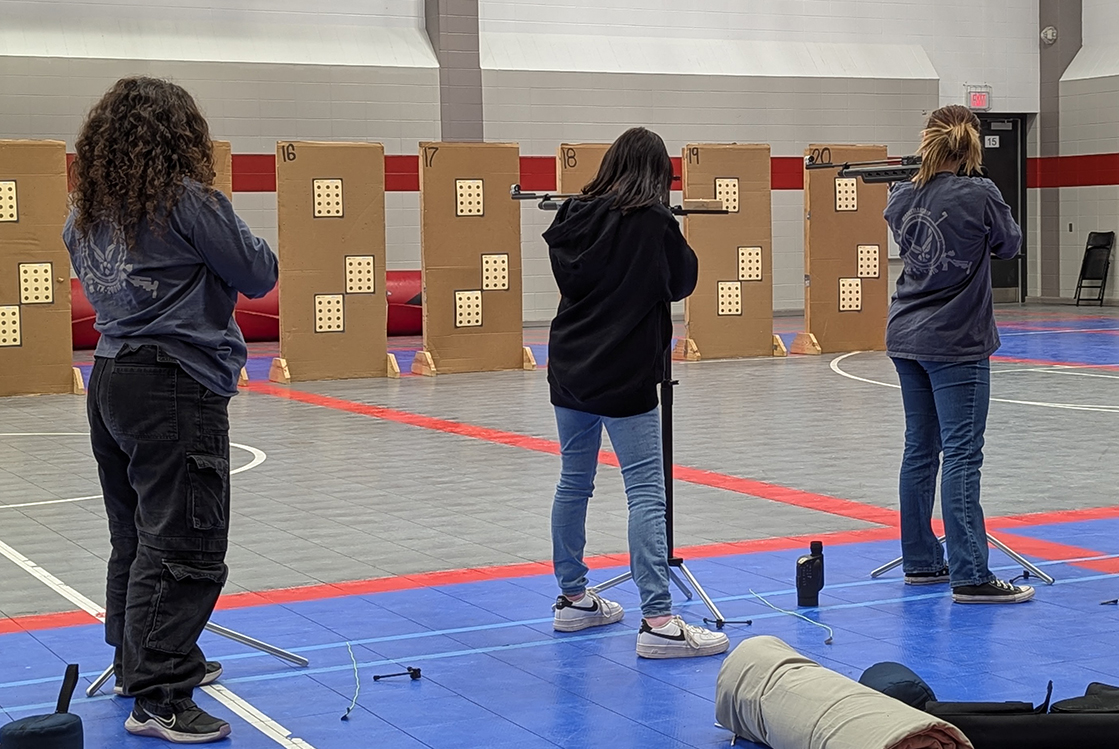She stares at her phone screen, the expression on her face a mixture between disturbed and longing. Then, abruptly, she throws her phone on the couch next to her, stands up, and walks to the bathroom. She turns on the light and stares at herself in the mirror. Slowly, she shakes her head and leaves the bathroom. Tears begin forming in her eyes, but she forces them away. Why can’t I be like them?
Tens of thousands of students think these thoughts and feel these emotions daily. Whether it is because they dislike their physical self, their academic performance, their prowess in sports, or a laundry list of other attributes, teens struggle with having a positive image of themselves.
“I see the perfect version of everyone else, but I don’t see the perfect version of myself,” junior Caleb Peterson said. “I see how I am on the inside, and that’s a challenge because sometimes I feel inferior to others.”
Good self-esteem is critical for everyone, but especially for teenagers since they’re transitioning to becoming an adult.
“A good self-image is important because it makes one feel more confident within themselves, their actions, and their mental health,” senior Taylor Harber said. “Constantly disliking how one looks is damaging to their well-being and hinders their ability to go about daily life being happy.”
Lacking a good self-image can lead to a variety of issues such as anxiety, depression, and health problems like eating disorders.
“I see so many people stressed about what another person thinks about them to the point of exhaustion and sometimes sickness,” senior Maya Gutierrez said. “The stress to conform to a society that only approves of perfection is exhausting, and ultimately, I see them hurt in the end when they don’t achieve the perfection they crave.”
Expectations from other people can weigh heavily on people, particularly expectations from first impressions.
“People want to be what other people expect of them,” Caleb said. “If you meet someone and say something funny, you think that around them, you must keep being funny. If you can’t accomplish that, you believe you’re not valued because you’re not what they’re expecting you to be.”
However, self-comparison to others is the most prevalent danger to teen self-image.
“When people begin to compare themselves to others, they begin to be more focused on the flaws they have rather than being confident,” Maya said. “Comparison is the thief of joy.”
Teenagers have to juggle many different spheres of their lives at once, which can contribute to poor self-image.
“Teens already deal with multiple factors that contribute to stress and depression,” Taylor said. “On top of school, work, and home life, fitting in with their peers also adds to the list of things that they feel they should achieve.”
Social media is one of the biggest dangers to teen self-image, compounding a problem teens have always faced and creating an environment many adults are unfamiliar with.
“Poor self-image can creep into every area of a teen’s life – emotionally, mentally and even physically,” academic adviser Justin Estes said. “I think in the digital age, social media is one of the main things that students struggle against when it comes to self-image. As a society, we’ve seen an increase in poor self-image.”
By its very nature, social media provides the perfect environment for people to make these comparisons.
“I see a beautiful girl in the media and immediately see what makes her beautiful and realize that I do not have those same attributes,” Taylor said. “This makes me feel bad about myself because I know that I can’t be like them.”
The irony is that often, the images on social media do not show the true character of a person.
“Social media allows people to portray what they want others to see and hide the parts they dislike about themselves,” Maya said. “The lack of vulnerability leaves people only getting a glimpse of someone’s life, not taking into consideration that the other person is likely to also have insecurities. Seeing someone else seem like they have their life altogether, it is easy to be jealous of the other person and forget about how we have been blessed.”
Though girls often experience more problems with their self-image, guys are not immune and still experience low self-esteem.
“A lot of the time we focus on girls maintaining a self-image because they’re known for having impossible beauty standards, but that can also be a problem for guys,” Caleb said. “We look at the super muscular action movie stars think that is the ideal male, but most people just can’t be like them. Everyone’s good at different things, and not everyone’s good at that.”
Girls agree that despite the same common stereotypes, guys face the same kind of public scrutiny as girls and struggle with self-image.
“I see little difference in a guy’s self-image versus a girl’s,” Taylor said. “Both expectations have to do with meeting an existing standard in society. If guys do not meet their criteria, they are considered as less of a man and insulted because of their lack of ‘masculinity’. If a girl does not meet these expectations, they are considered less attractive or something that guys ‘aren’t into’.”
Many students wrestle with self-image, but acceptance is the key to combating negative thoughts.
“Combating poor self-image is a difficult process,” Taylor said. “What has helped me was just accepting who I am. I had to let go of what I considered to be the perfect woman. By being content in who I was, what I looked like, and how I perceived myself, I finally found myself beautiful.”
Some of the steps to developing a better self-image can be difficult, especially for this generation of teens that has grown up around technology and media.
“When it comes to improving self-image, I know it’s easier said than done,” Estes said, “but I’d start with limiting social media exposure. When students place all of their self-worth on things that are on the outside like appearances and other material things, they lose sight of their inherent, internal value.”
Acceptance of self goes both ways, and it’s important to encourage others as well.
“If you love yourself, try to appreciate other people for who they are also,” Caleb said. “You’ve got to understand everyone is going through the same problems, so you want to make sure everyone feels loved for who they are. Make sure they don’t have to change themselves to be anything for you.”





